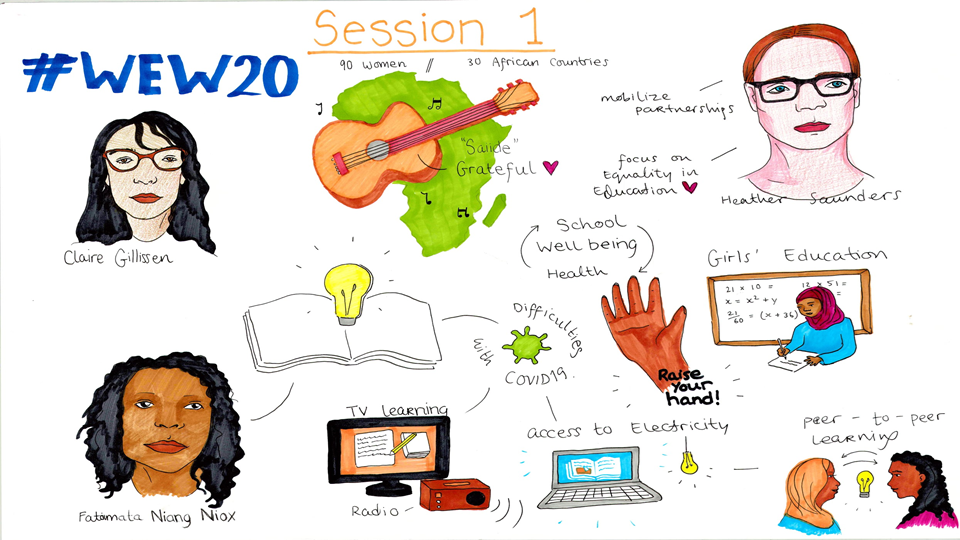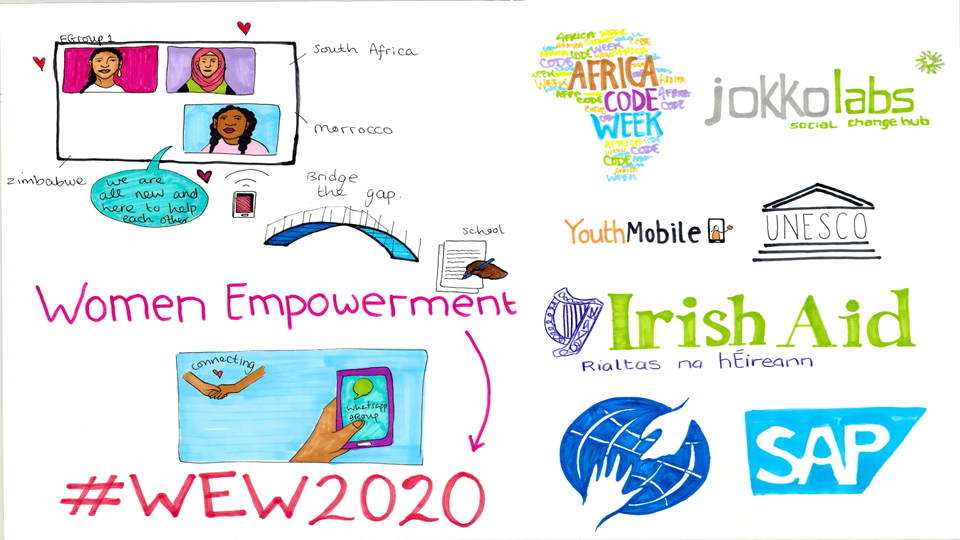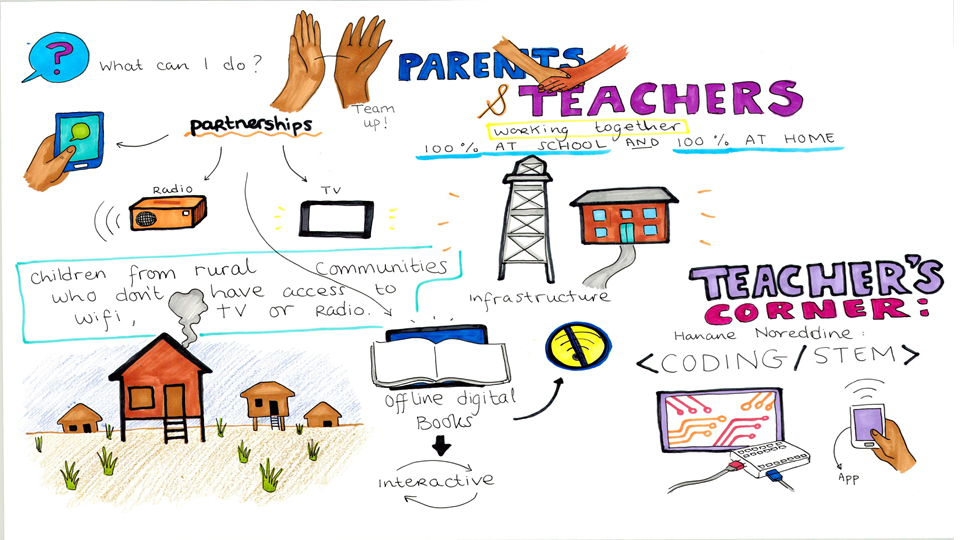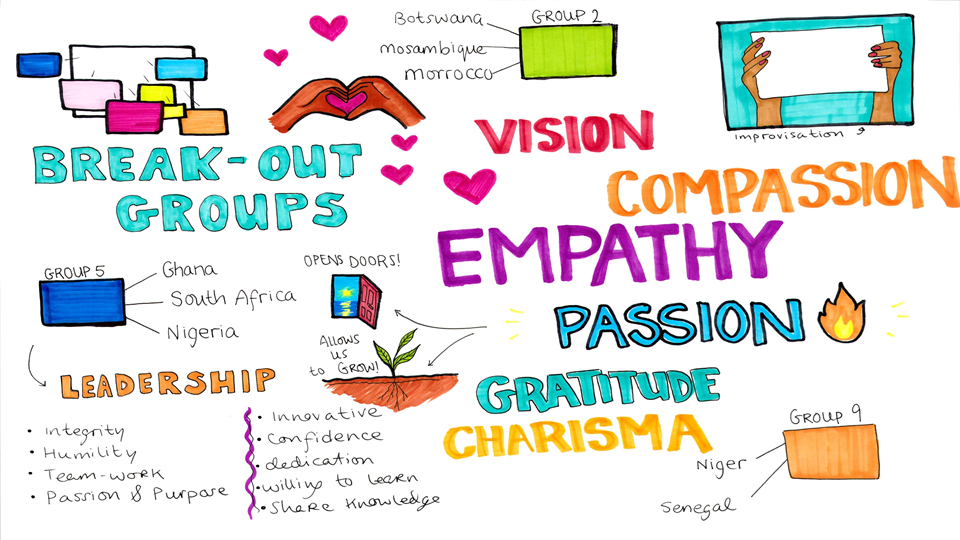An estimated 230 million jobs in sub-Saharan Africa will require digital skills in 2030, according to a report by the International Finance Corporation (IFC). One programme supporting young Africans to take advantage of these opportunities is the continent’s biggest youth digital skills initiative, SAP Africa Code Week (ACW) which actively engaged +2,6 million participants in 2022, by equipping them with 21st-century skills. “Since ACW’s launch in 2015, SAP, UNESCO, the Association for the Development of Education in Africa (ADEA) and Irish Aid share a common goal to empower young people with the digital skills set they need today to ensure they are prepared for the workforce of tomorrow,” comments Claire Gillissen-Duval, Senior Director of Corporate Social Responsibility EMEA and MEE at SAP.
She says that through 37 121 workshops held across the continent, she is thrilled to report that more than 48% of participants were female, with an additional 9,900 youth with special needs. “Today’s digital world is continually evolving and changing through the rapid adoption of technology, this is widening Africa’s digital divide with even more marginalized and underserved communities getting left behind.”
Collaboration is key to powering digital learning
Partnerships are at the core of the SAP ACW model. In 2022, Morocco has led the continent’s conversation around equipping young people with digital skills, followed by Nigeria and Cameroon. “This year, we saw 1,4 million participants from Morocco, 100 000 in Nigeria, and in Cameroon, we had 897 000,” says Dr. Tawfik Jelassi, UNESCO’s Assistant Director-General for Communication and Information. “One of the reasons behind the major success of ACW in those countries, and especially in Morocco, has been partnering with the governments and particularly, with the Ministries of Education. To illustrate this, Ilham Laaziz, Director of the GENIE program at the Moroccan The Ministry of National Education, Early Education, and Athletics, highlights that the Moroccan government has deployed several initiatives to integrate digital skills in schools. “Joining forces with the private sector has proven to result in a powerful synergy. Beyond launching a generation of future coders, we seek to develop the algorithmic mindset that will enable them to acquire logical reasoning skills and problem-solving skills they need to lead successful careers and contribute to the development of our country – and our continent.”
Coding Africa’s school curricula
Over the past seven years, close to 14 million students and teachers from 48 countries have been empowered with digital skills through ACW. 2023 will now see the coding program shift into the second phase by accelerating this process even further to ensure greater impact and reach.
“There are approximately 300 million young people in Africa, and our goal is to empower each and every one of them with digital skills,” says Emmanuel Raptopoulos, President of SAP’s EMEA South region, which includes Southern Europe, the Middle East, and Africa. “A vision like ours requires all stakeholders to work together and collaborate for the betterment of the continent and its future leaders. This is why the ACW curriculum will be handed to governments to support them in introducing coding into school curricula.”
Commencing the two-year action plan, ACW hosted a three-day event in Morocco in Rabat which was attended by various government officials and education representatives from ten African countries. The gathering marked the start of a two-year transition period, where governments will play an even greater role in fostering the adoption of coding by running the ACW program as part of their curricula.
“This was the start of a bigger vision which calls for governments to play a bigger role in encouraging the use of coding in schools by implementing the ACW program into their curricula,” says Julius Fomboh, Inspector General of Pedagogy in charge of Computer Science Education in the Ministry of Secondary Education in Cameroon, and member of the ACW transition taskforce. “In order for the continent to successfully equip young people with the skills required for the future, all stakeholders need to come together and unite.”
Gillissen-Duval concludes, “To date, nine African countries have officially adopted coding as a mandatory subject in public education. This number must grow to level the playing field and ensure every African child, youth and teacher has the opportunity to reach their potential and contribute to their community. By investing in digital education, African nations choose to create a better future for their citizens and equip them with the skills they need to thrive in a rapidly changing 21st century world.”



